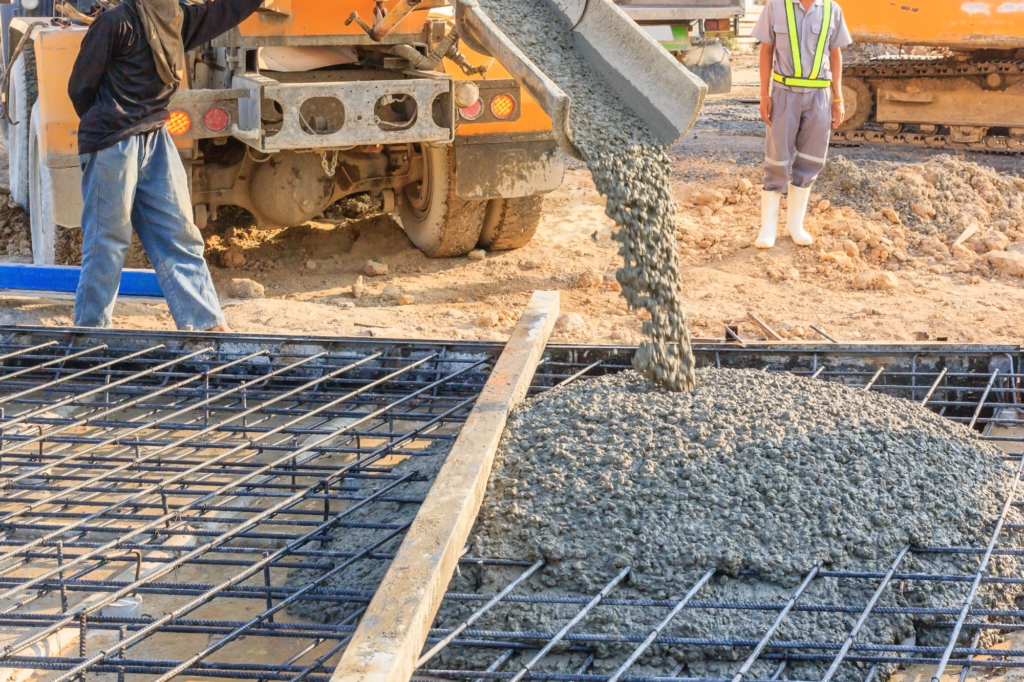In the bustling metropolises around the world, concrete dominates the urban landscape, shaping the very fabric of our cities. From towering skyscrapers to expansive highways and intricate infrastructure networks, concrete is the backbone of modern urbanization. Behind the scenes, skilled contractors play a pivotal role in navigating the complexities of urban landscapes, ensuring that concrete structures are built to withstand the demands of city life. In this article, we’ll explore how contractors navigate the concrete jungle, tackling challenges and transforming cityscapes with their expertise and ingenuity.
Infrastructure Expansion:
As cities grow and evolve, the demand for new infrastructure continues to rise. Skilled contractors are at the forefront of infrastructure expansion projects, building and repairing roads, bridges, tunnels, and transit systems to accommodate increasing population and traffic. From pouring concrete for new highway interchanges to reinforcing aging bridges with innovative materials, contractors play a crucial role in keeping urban infrastructure safe, reliable, and efficient.

Road Construction and Maintenance:
One of the most visible aspects of infrastructure expansion is the construction and maintenance of roads and highways. Contractors are responsible for everything from laying the initial foundation to paving the final surface. They meticulously plan and execute road projects, considering factors such as traffic flow, drainage systems, and environmental impact. With advanced equipment and techniques, contractors ensure that roads are built to withstand heavy use and adverse weather conditions, keeping traffic moving smoothly and safely throughout the city.
Bridge and Tunnel Construction:
Bridges and tunnels are critical components of urban infrastructure, providing vital connections across bodies of water, valleys, and other natural obstacles. Contractors specializing in bridge and tunnel construction employ advanced engineering and construction methods to build structures that are not only functional but also aesthetically pleasing. From towering suspension bridges to subterranean tunnels, these projects require meticulous planning and execution to ensure structural integrity and longevity.
Public Transit Systems:
As urban populations continue to grow, the demand for efficient public transit systems becomes increasingly important. Contractors are tasked with building and expanding subway lines, light rail networks, and bus rapid transit systems to provide residents with convenient and sustainable transportation options. These projects often involve complex engineering challenges, such as tunneling beneath densely populated areas or navigating underground utilities. Contractors work closely with transit authorities and city planners to minimize disruptions and deliver projects on time and within budget.
Airport and Port Infrastructure:
Airports and ports are vital gateways for commerce, tourism, and travel, requiring robust infrastructure to handle the demands of modern transportation. Contractors specializing in airport and port construction are responsible for building runways, terminals, docks, and other facilities that facilitate the movement of people and goods. These projects demand a high level of coordination and expertise to meet stringent safety and security standards while accommodating the ever-changing needs of the global economy.
Utility Infrastructure:
Behind the scenes, contractors also play a crucial role in expanding and maintaining utility infrastructure, including water and sewer systems, electrical grids, and telecommunications networks. They install and repair pipelines, power lines, and communication cables to ensure reliable service for residents and businesses. With growing concerns about sustainability and resilience, contractors are also involved in upgrading infrastructure to withstand natural disasters and mitigate the impacts of climate change.
Urban Revitalization:
In addition to building new infrastructure, contractors are also instrumental in revitalizing urban areas that have fallen into disrepair. Through adaptive reuse projects, historic preservation efforts, and community-driven initiatives, contractors breathe new life into neglected neighborhoods, transforming vacant lots, abandoned buildings, and obsolete industrial sites into vibrant hubs of activity. By repurposing existing structures and incorporating green spaces, public art, and pedestrian-friendly amenities, contractors help create more livable and sustainable cities for residents and visitors alike.
Sustainable Solutions:
With growing concerns about environmental sustainability, contractors are increasingly incorporating eco-friendly practices and materials into their projects. From using recycled aggregates and fly ash in concrete mixes to implementing energy-efficient construction methods and green building technologies, contractors are helping cities reduce their carbon footprint and mitigate the impacts of climate change. Sustainable design principles, such as rainwater harvesting, green roofs, and permeable pavements, are also being integrated into urban landscapes to improve water management and enhance the overall quality of life for urban dwellers.

Innovative Design:
In the competitive world of urban development, contractors are constantly pushing the boundaries of design and construction to create iconic structures that define city skylines. From cutting-edge architectural marvels to innovative public spaces and landmark buildings, contractors collaborate with architects, engineers, and designers to bring visionary projects to life. Advanced techniques such as building information modeling (BIM), 3D printing, and prefabrication are revolutionizing the way concrete structures are designed and built, allowing for greater efficiency, accuracy, and sustainability in urban construction projects.
Community Engagement:
Beyond their technical expertise, contractors also play a vital role in engaging with local communities and stakeholders throughout the construction process. By fostering open communication, addressing concerns, and involving residents in decision-making, contractors build trust and goodwill within the communities they serve. Public outreach programs, job training initiatives, and partnerships with local organizations further demonstrate contractors’ commitment to making a positive impact on the cities they help build and maintain.
Conclusion:
In the concrete jungle of urban landscapes, contractors are the unsung heroes who navigate the challenges and opportunities of city living. From infrastructure expansion to urban revitalization, sustainable solutions, innovative design, and community engagement, contractors are instrumental in shaping the future of our cities. Contact us today to learn more about how our skilled contractors can help navigate the complexities of urban landscapes and bring your vision for the city to life with quality craftsmanship and expertise.

